Francis Chan Butchers Church History: ‘Christians Believed the Same Thing for the First 1500 Years’
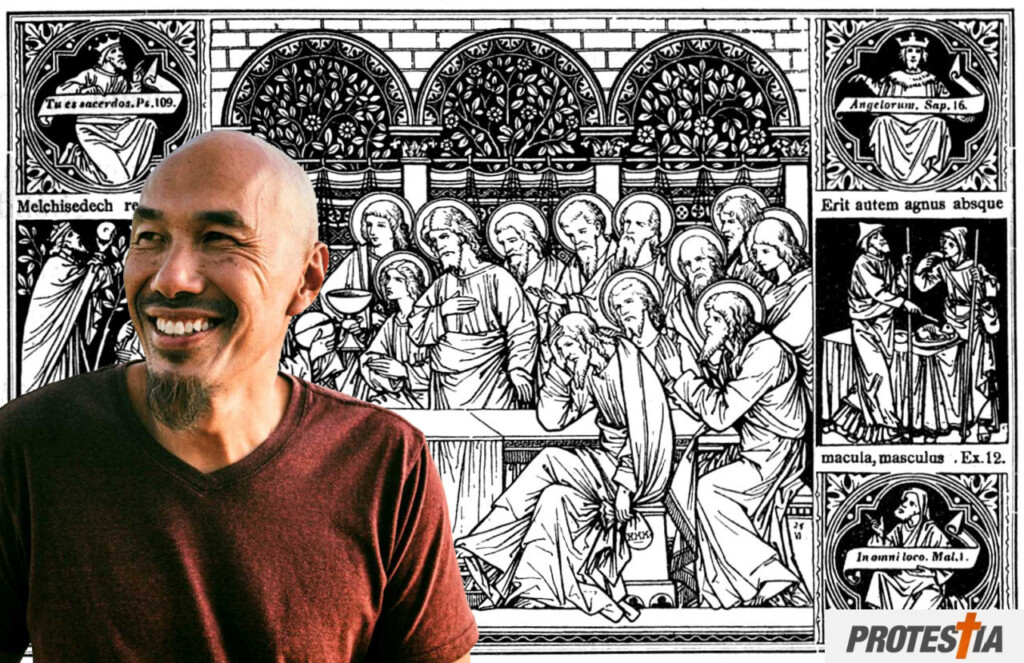
Francis Chan sat down with Bible Answer Man Hank Hanegraaff, who went off the deep end and abandoned the scriptures alone when he converted to the Greek Orthodox Church, and Founder of Gospel For Asia KP Yohannan to dive into some deep discussions on what unifies and divides Christians.
In a deeply troubling display of infantilism, Chan spends near the entire time in emotional agony, asking both men basic questions of the faith to the point where you wonder how on earth this man can be a teacher and minister when he is conflicted about so many things and doesn’t seem to understand the tenets and history of Christianity. It’s frightening, and for the ever-increasingly confused Chan, shows his drift towards some form of either charismatic Roman Catholicism or to the Greek Orthodox church itself.
He says:
I want to ask something because I feel like I’m in a place that’s similar to a lot of people, where I’ve been a part of a tradition that basically allows every individual to go in his office or his basement and just kind of come up with an interpretation and then get as many followers as they can.
And so it’s almost a popularity contest of ‘hey, I am so intelligent so follow me,’ or ‘I have this supernatural power of doing these miracles so follow me.’ Or has a charismatic personality or I’m just a gifted leader, and so based upon that you have so many different theologies that when you walk into a church, you don’t know their view of sexuality, you don’t know their view of marriage and divorce, because everyone just preaches something different.
And so some of us are just going, ‘ok, I’ve been a part of that – it feels like a circus,’ and I am fighting for these things, and now I’m seeing some of the wisdom of…ok I get why people say, ‘well you don’t just – everyone goes alone and figures it out for themselves and then gathers as many followers as possible.’
[Rather] we go back to the ancient church and try to figure out what did those early church fathers agree on? What did those councils agree on? And part of that feels very good to me, that it’s not like I’ve got to be that beacon of truth because everyone and their mother is starting their own podcast you know out of their basement and going, ‘hey, follow me. These guys are out, these guys are out!’
You know? Snd it’s just going, ‘this is ridiculous. Like this can’t be the way.’ And so there’s something attractive going, ‘oh, there was a time when everyone agreed? I want to go back to that’ so that I can say, ‘look, this isn’t an idea that I just made up.’ 1500 years, they all agreed. This is your view of sexuality. This is the view of whatever, whether it is the eucharist or how you dress, or whatever but I’m just going, ‘I want to surrender to that.’
There’s a part of me that would go, ‘oh that would be nice. I don’t have to feel like I’m the savior of the world and my theology is right and I’ve got to fight all these other guys who think their theology is right.’ I’d like to be able to say, ‘hey, you know what I believe is historical. This is what everyone believed for this many years.‘
Now again, I don’t know what to do at this point. I’m not where you guys are at, where you’ve tied yourselves completely and I guess I feel a little bit lost. Like I’m starting to see the value in that, like really see the value in that and see that makes sense, and going, ‘gosh that does make more sense than being out here rebellious.’
I feel a bit arrogant for the way I’ve lived my life and the way that I taught, because it had a lot to do with me and my personal interpretation, and I do want to learn what is this collective interpretation you talk about and these councils. What would be your advice to me in taking this next step?”
Those are interesting words for a guy who’s taken up with Bethel Church and Bill Johnson and all the beliefs they possess. All those ones that have been practiced for 1500 years like fire tunnels, holy laughing, janky prophecies, and grave sucking. But the fact that Chan believes that the Christian churches believed the same thing for the first 1500 years, and then those pesky protestant reformers came and ruined it all, is shocking. It’s incredible that he believes that. His naïveté is off the charts.
After Hannegraph and Yohannan talk about the importance of being humble, how they learned so much from the “Desert Fathers and Mothers” and ripped on discernment ministries and people who judged their words and take them out of context (It’s why you get the long transcripts exclusively here) Chan concludes:
God says he gives grace to the humble and he resists the proud. He opposes it, and so when I see some of these things on the internet of people just so sure that they’re right and everyone else is wrong, there’s part of me that says ‘maybe they’re brilliant at this, maybe they’re this, this, this.’ But my logic goes, ‘wait, if God opposes the proud, can I believe that that’s the guy that he would grace with real truth right there?‘ And I hadn’t really thought about searching for humility..



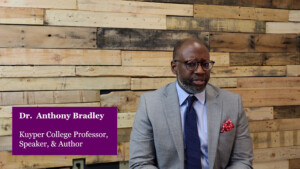
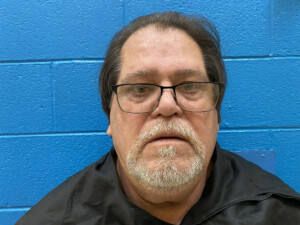
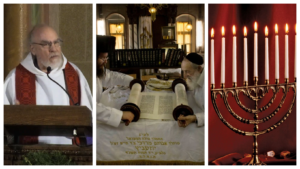
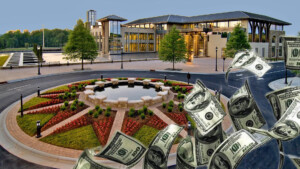
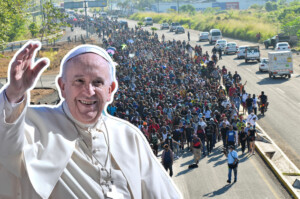
Well, I’ve just gotten to the point that I don’t care what all the self-appointed experts think. Who do they think they are? If people quit buying their books and donating to their “ministries,” they’d have less time to sit around making videos and podcasts and acting like they have something earth-shattering to say. A little church history is helpful – it has it’s place. [Thank you, Robert Baker and Bill Estep! Okay, I’m old.] But I think we’ve gone terribly wrong the way we’ve diminished the local church. Few pastors today are genuine students of the Word. Congregations aren’t seeking to understand and OBEY the Word TOGETHER. If we get serious about doing what it says, we’d probably understand it better. I don’t care what Piper or Keller or Yohannan or any of them think. I don’t go to church with them. The Bible comes with its own teacher, the Spirit. I’d love to see local churches get serious about FOLLOWING the Lord right here at home. Open up their Bibles and seek God. Ignore the “experts.”
Agreed!
Amen!
Hank: “The church is the ground and the pillar of truth” (https://youtu.be/PDm251gA6Lw?t=219)
Jesus: “Your word [the Bible] is trugh” (https://www.biblegateway.com/passage/?search=John+17%3A17&version=NASB)
That right there tells you everything you need to know about this confusing mess of a conversation. If the Orthodox church is Hank’s standard for truth, what kind of meaningful discussion can there be with Christian’s who hold the scriptures (which is authoritative, necessary, sufficient, and clear) to be the only source of theological and spiritual truth? What may be confusing is how Hank is not completely wrong because he does have some correct beliefs. However, when Hank states a true doctrine (such as the deity of Christ, or the doctrine of the Trinity) it’s because of what the “church Fathers” (i.e. the council of Nicaea in A.D. 325 and the later council of Constantinople in A.D. 381) confirmed and not because that’s what the Bible says.
Hank doesn’t say the Church is the pillar and foundation of truth, the Bible does. 1 Timothy 3:15.
Which should lead you to the question: which church? Well, the answer is THE Church.
The Church is not denominated (divided). It is One.
The Church is Holy.
The Church is Catholic (universal).
And the Church is Apostolic (which is why not just anyone can go and start a “church”. They don’t have the authority to do so).
The Church does not hold to varying beliefs regarding the Holy Sacraments.
Amen to that, Pastor’s Wife. Very thankful to the Lord that my Pastor is a God fearing bible preaching, line by line man. Really sinking in how very essential (and rare) that is.
This is the result of the confluence of a few modern factors.
First, the proliferation of independent churches that may be called independent evangelical, independent fundamentalist, or whatever. Denominationalism has problems too but the independent crowd is untethered to any historical doctrine, and often any form of correction.
Second, he’s right about anyone just starting a church that believes whatever. Any old Who can just start something they call a church. “We’re just a group of people that love God.” Whatever that means.
Third, seminaries are apparently as bad as any other school with poor educational standards to measure poor curriculum. I don’t know or really even care where Chan went to seminary , but can only wonder how he got out without any knowledge at all of church history, Catholicism, and Eastern Orthodoxy. He must not actually know much doctrine either.
Fourth, and maybe most importantly, the social media culture. Many of these churches are just cults of personality. And they can get rich as Croesus shamming the naive.
When there is no oversight from denominational dealers, government, or society then you get a church free for all. I’m not saying I support all of those things unconditionally, only that without them eventually “do as thou wilt shall be the whole of the law” becomes the norm.
I’m sure there are more reasons. That’s just what I am thinking.
I can speak only for the Southern Baptist seminaries and The Master’s Seminary. None of them go into any detail about Orthodoxy (Greek, Russian, etc.). The church history books the SBC uses are mostly liberal (Justo Gonzalez wrote the most popular ones). As for the The Master’s Seminary (John MacArthur), I checked their MDiv program last year and there were no church history courses, let alone anything on the Orthodox. So, that’s a big reason why evangelicals know so little about Orthodoxy or church history in general.
I think having a decent knowledge of church history is valuable, but I also think it’s a danger. The tendency when studying church history becomes more of “what did the early fathers say” as opposed to “what does the Bible say.” You see this with Catholics and the Orthodox especially. If you ask them why they believe what they believe, they will often cite a church father and not the BIble. So, I understand why seminaries have deemphasized Christian history but I think they went to far. Christian history is fine as long as the teachers clearly and repeatedly stress that we are to follow the Bible and not men from history — even men who were close to the apostles — since all men can err.
Thanks Chris. I had not considered the reliance on the church fathers. You are right.
I’ve found for myself I understand Baptist and evangelical doctrine more when I contrast it to what other churches believe. Sometime evangelicals seem to go into these discussions completely unarmed and are dazzled by Catholicism or Orthodoxy because of the beauty, reverence, ancientness , and exoticness of the liturgical services. But without some knowledge of these systems they don’t really understand what they’re getting. They probably don’t quite know that they are trading assured justification by faith for a system of ‘continuous justification;’ that they are saying they want to reset their salvation to zero (or close) and work the rest of their lives for something they can never complete, beg for intervention from Mary, saints, angels, and whoever else, then go to purgatory and get it worked out. That not being considered justified, they must pray to a hoard of ‘intercessors’ like Mary and the saints to ferry prayers to God on their behalf. If our *clergy* don’t even know this then certainly the average Baptist or evangelical doesn’t. Seems like the seminaries might think about a semester class on comparative doctrines, IMHO.
Completely agree. Well said.
You say: “ The tendency when studying church history becomes more of “what did the early fathers say” as opposed to “what does the Bible say.” You see this with Catholics and the Orthodox especially. If you ask them why they believe what they believe, they will often cite a church father and not the BIble.”
I ask you this. What does the SBC teach concerning baptism? What does the PCA teach concerning baptism? Do you believe a Holy Sacrament is just a matter of opinion or preference? Who is right and who is wrong? 1 Timothy 3:15 says the Church is the pillar and foundation of truth. Is truth not absolute?
Yes, I will rely upon Apostolic teachings of the early Church (Orthodox) more so than the modern inclinations of the tens of thousands of enlightened Protestant popes.
Why would you even believe the Bible? It didn’t fall out of the sky; it was put together by Catholic scholars from the teaching the Apostles who handed it down & was taught for centuries. That’s why the Catholic Church is called the Apostolic Church.
In St. John 20:30-31 it says:
20:30 There were many other signs that Jesus worked and the disciples saw, but they are not recorded in this book.
21:25 But there are also many other things which Jesus did; which, if they were written every one, the world itself, I think, would not be able to contain the books that should be written.
Catholics recognize that the true “rule of faith”—as expressed in the Bible itself—is Scripture plus apostolic tradition, as manifested in the living teaching authority of the Catholic Church, to which were entrusted the oral teachings of Jesus and the apostles, along with the authority to interpret Scripture correctly. God bless you.
I often wonder why there are so many independent, non-denominational churches where I live in Charlotte, NC, but then again they’re everywhere throughout America, and I think it’s because the men who start them don’t want accountability and essentially want to be a Protestant Pope, although they would never admit that.
I have to wonder what Chan would think about the Roman Catholic Church who has declared that there is no salvation outside of it, although they have softened on that since Vatican II in the 60s but they’ve never rescinded that belief, and of course, the current pope is obviously a Universalist or at least an inclusivist.
Lastly, most people don’t realize that Rome, during the Council of Trent, codified their anathema of the gospel of salvation by grace through (God-given) faith alone. They’ve never rescinded that anathema because they believe and teach that a sinners so-called good works must be added to it, so what does that tell us because if you place a curse on that aren’t you essentially placing it on yourself as we read in Galatians?
Francis is a whiner.
“If you ask them why they believe what they believe, they will often cite a church father and not the BIble”. Or their favorite author or their pastor. When you bring up something from the bible, many times you get the “deer in the headlights” look. Bible literacy is at an all time low in the church.
Crossing my fingers Chan pulls a Hank Hanegraaff and ditches Protestantism for Orthodoxy and that his followers go with him.
I sure hope he figures it out.. painful watchin such a rambling mess… A trio of fools..
Francis Chan is a difficult person to understand. Certainly popular, but like most contemporary “leaders” he really has mixed messages. Of course I do agree that the “visible” church is a big mess. That is true, but in reality it’s often the world which he relates to with in it that is much, not all, of the mess. I have a good summary of issues about Eastern Orthodox, Prosperity Gospel and Word of Faith, televangelists, mega-church’s, multi site churches, and the New Apostolic Reformation, Bethel Redding, etc.
And for those inclined toward Romanism, please read J A Wylie’s, classic The History or Protestantism, at least unto his publication in 1878 & 1899. It’s 3 volumes, 4,000 pages so not for the faint.